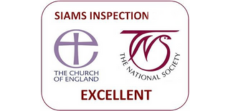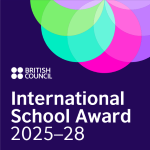Phonics at St Andrew's
At St Andrew’s we aim for all our children to become fluent, confident readers who are passionate about reading.

Children who read regularly or are read to regularly have the opportunity to open the doors to so many different worlds! More importantly, reading will give your child the tools to become independent life-long learners.
We can achieve this together through:
- Rocket Phonics, a program to help to your child read at school
- Encouraging children to develop a love of books by reading to them daily, at home and at school
- Giving children access to a wide range of books at school and at home
At St Andrew’s we use Rocket Phonics to give your child the best possible start with their literacy.
What is Rocket Phonics?
Rocket Phonics is a phonics complete literacy programme which helps all children learn to read fluently and at speed so they can focus on developing their skills in comprehension, vocabulary and spelling. The programme is designed for children aged 4-7.
More information and a video explaining our scheme can be found here: https://www.risingstars-uk.com/subjects/reading-and-ebooks/rising-stars-reading-planet/reading-planet-reception-and-ks1/rocket-phonics
How will Phonics be taught?
The program focuses on two sounds a week with a day focused to decoding and a day working on segmenting. On the final day of the week we work on spelling of the common exception words.
Reception
In Reception all children will learn how to recognise the sounds in words and how those sounds can be written down.
Reading
The children:
- learn 44 sounds and the corresponding letters/letter groups using simple picture prompts
- learn to read words by pronouncing each sound in the word, one at a time. Children start blending sounds into words as soon as they know a small group of letters well. Sound blending is essential in reading.
- read from a range of storybooks and non-fictions books matched to their phonic knowledge
- develop comprehension skills in stories by answering discussion questions
Writing
The children:
- learn to write and form the letters/letter groups which represent the 44 sounds with the help of fun phrases.
- learn to write words by segmenting sounds.
- learn to build sentences by practising sentences out loud before they write
Talking
- The children have opportunities to build language by sharing high quality texts on a daily basis. Teachers use ‘Book talk’ and model asking questions and discussing or commenting on what can be seen or what has been read. Adults model thinking out loud, asking questions, answering them, discussing new vocabulary and provide opportunities for the language to be embedded.
- Children are listened to, and time is given to the value of simply talking. Conversational opportunities are prioritised, and ad hoc conversations, investigations, stories and role play are always valued.
- Children are encouraged to retell stories using story book language
- Children are asked to elaborate and to clarify their ideas and opinions and are reminded to use new vocabulary or to use a range of connectives in the sentence.
Year One & Year Two
Children follow the same format as Reception but will work on complex sounds and read books appropriate to their reading level. Daily sessions of phonics last between twenty to thirty minutes.
· Children read together big books where they recognise key words and sounds that are being taught.
· Children complete workbooks or worksheets to practise the sounds that we learn daily.
· We have daily guided reading sessions where we share books at the child’s phonics related levels.
Children will be taught how to read as follows:
Before you start to teach your child, practise saying the sounds below. These are the sounds we use to speak in English.
We use pure sounds (‘m’ not’ muh’,’s’ not ‘suh’, etc.) so that your child will be able to blend the sounds into words more easily.
At school we then start to put these sounds together to make words.
E.g. m-o-p, c-a-t, m-a-n, sh-o-p, b-l-a-ck.
There are phonics videos that you can play to help your child with recognising sounds… https://www.phonicsplay.co.uk/
There is a parent guide about our phonics scheme that can be found here… https://www.risingstars-uk.com/media/Rising-Stars/Reading/New%20Phonics%202021/Rocket-Phonics-Parent-Guide.pdf
Nonsense words (Alien words)

As well as learning to read and blend real words children will have plenty of opportunities to apply their sound recognition skills on reading ‘Nonsense words’. These words will also feature heavily in the Year One Phonics Screening check in the summer term.
Phonics Screening Check Year One
What is the Year 1 phonics screening check?
The Year 1 phonics screening check is a short, light-touch assessment to confirm whether individual pupils have learnt phonic decoding to an appropriate standard.
It will identify the children who need extra help so they are given support by their school to improve their reading skills. They will then be able to retake the check so that schools can track pupils until they are able to decode.
To help at home:
We know parents and carers are very busy people. But if you can find time to read to your child as much as possible, it helps him or her to learn about books and stories. They also learn new words and what they mean. Show that you are interested in reading yourself and talk about reading as a family.
You can find more information about the program and additional resources and videos here: https://www.risingstars-uk.com/subjects/curriculum-resources/rising-stars-reading-planet/reading-planet-reception-and-ks1/rocket-phonics
In Key stage 2, reading skills are developed mainly through guided reading sessions. Whole class guided reading ensures the teaching of the six reading domains: Vocabulary, inference, prediction, explanation, retrieval, sequencing and summarising (known as ‘Reading VIPERS’). Some guided reading also takes place in small groups to target children at different abilities.
Phonics sessions continue in KS2 where required. Our teachers and teaching assistants are trained to be able to adapt the resources used in KS1 for target groups of children.
We not only teach the skills of reading at St Andrew’s, we place a high value on reading for enjoyment. As part of this, we ensure that every child is able to enjoy listening to an adult reading a class novel to them. We participate in different events throughout the year, from World Book Day and author visits to the Summer Reading Challenge. There is a mini library in every classroom where the children are able to borrow books and recommend books they have enjoyed to others. We also have a non-fiction library in a communal area for children to browse and borrow books. The Chinnor library is next door to the school and classes are able to visit to borrow books. We run a lunchtime club for children to sit and enjoy reading their books on our bus.



.png)

.png)
.png)
.png)
.png)
.png)
.png)